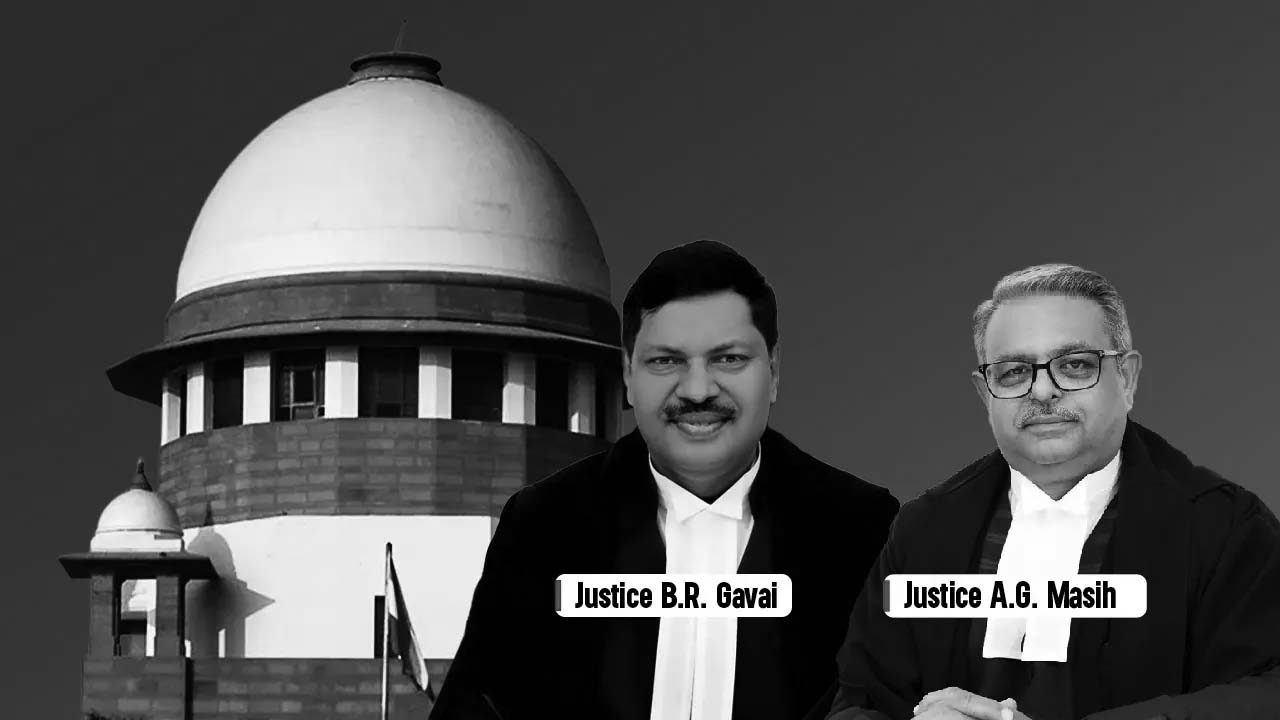Case: Lakshya Tawar v. Central Bureau of Investigation (SLP(Crl.) No. 5480/2025)
Court: Supreme Court of India
Bench: Chief Justice B.R. Gavai and Justice Augustine George Masih
Date of Order: May 22, 2025
A system on trial
In a powerful assertion of personal liberty over procedural inertia, the Supreme Court of India intervened to grant bail to Lakshya Tawar, a man whose plea for release had been adjourned an astonishing 27 times by the Allahabad High Court. Having already spent over four years in detention, Tawar’s case became a flashpoint for judicial delay. The apex court’s decision was not a commentary on the merits of the criminal allegations against Tawar but a sharp rebuke of a system that allowed a bail hearing—a matter of fundamental rights—to languish indefinitely. “In matters of personal liberty,” the bench led by Chief Justice Gavaideclared in its order, “the High Courts are not expected to keep the matter pending for such a long time and do nothing, except for adjourning from time to time.”[1] The ruling serves as a critical case study on the judiciary’s role as the ultimate guardian of Article 21 and the dire consequences when procedural delays effectively negate the right to a timely hearing.
The factual background: A labyrinth of deferrals
Lakshya Tawar was arrested, facing serious charges of cheating, forgery, criminal conspiracy under the Indian Penal Code, and corruption under the Prevention of Corruption Act. His bail application was filed in the Allahabad High Court.
What followed was not a swift adjudication but a cycle of repeated deferrals. Over the course of his plea, the matter was adjourned 27 times. During the proceedings, the High Court took note of Tawar’s “long criminal history of thirty-three cases” and, in its order of March 20, 2025, adjourned the case for another two weeks. It directed the trial court to first record the evidence of the complainant before it would reconsider the bail plea. While this might appear as a measure of due diligence, for a man already incarcerated for four years, it represented yet another hurdle in a seemingly endless procedural maze. It was this pattern of delay that propelled the case to the Supreme Court.
The Supreme Court’s intervention: A decisive rebuke
On May 22, 2025, the Supreme Court expressed its unequivocal disapproval. “How can the high court adjourn a bail hearing 27 times in a matter related to personal liberty?” Chief Justice Gavai pointedly asked. The Court noted that it would “normally not have entertained the matter” challenging adjournments, but the “peculiar facts and circumstances” of this case, namely the extraordinary number of deferrals, demanded an exception.
The Supreme Court’s decision to grant bail was based on a confluence of factors:
- The Egregious Delay: The 27 adjournments were the primary catalyst, which the Court viewed as a de facto denial of justice.
- Prolonged Incarceration: Tawar had already been imprisoned for over four years.
- Fulfilment of High Court’s Condition: The complainant’s evidence—the very reason for the High Court’s last adjournment—had since been recorded.
Finding the High Court’s inaction indefensible, the Supreme Court directly granted bail to Tawar, rendering the application pending before the Allahabad High Court “infructuous.” By doing so, it sent a powerful signal that procedural failings impinging on fundamental rights would not be tolerated.
Upholding the spirit of Article 21
This case is a potent illustration of Article 21 of the Constitution, which guarantees that no person shall be deprived of their life or personal liberty “except according to procedure established by law.” The Supreme Court’s jurisprudence, notably in Maneka Gandhi v. Union of India, has established that this procedure must be “just, fair, and reasonable.” The right to a speedy trial, articulated in Hussainara Khatoon v. Home Secretary, State of Bihar, is a cornerstone of this principle.
The Tawar judgment extends this logic forcefully to pre-trial proceedings. Indefinite detention caused by the repeated adjournment of a bail hearing is a clear violation of fair procedure. By intervening, the Supreme Court reaffirmed that judicial discretion in managing dockets is not absolute and cannot be exercised in a manner that erodes fundamental rights. The maxim “justice delayed is justice denied” is rarely more applicable than when an individual’s liberty is suspended in a state of indefinite judicial limbo. However, whether the Supreme Court and judiciary as a whole will apply this standard in dealing with the delayed bail for political prisoners, especially in the context of cases like Umar Khalid’s is a question that is yet to be answered.
(The author is part of the legal research team of the organisation)
[1] Para 5, Lakshya Tawar v. CBI[SLP(Crl.) No. 5480/2025
Related:
